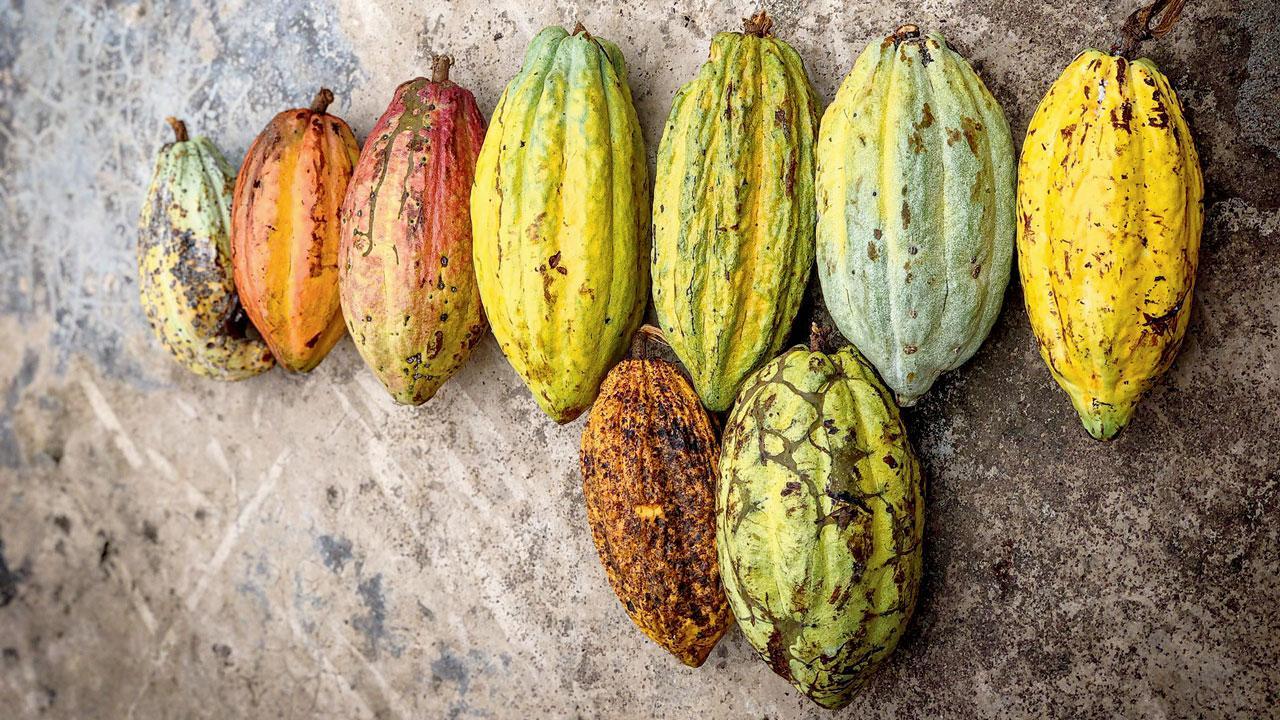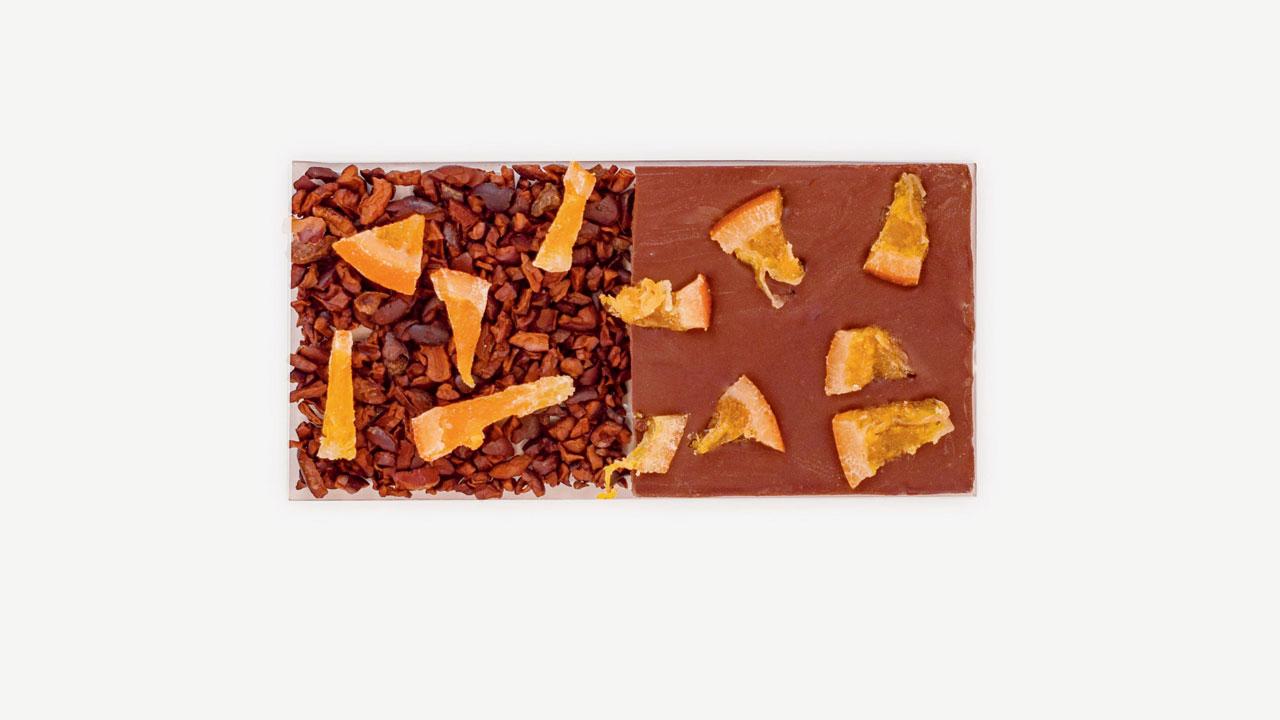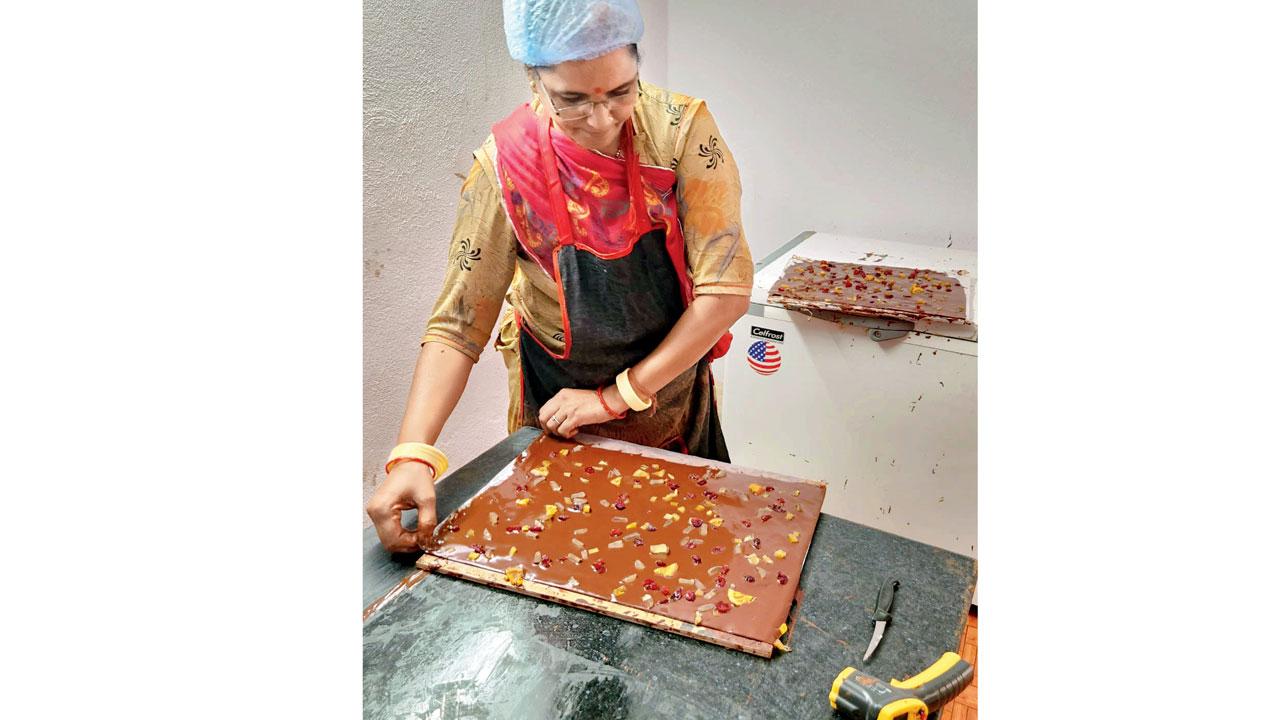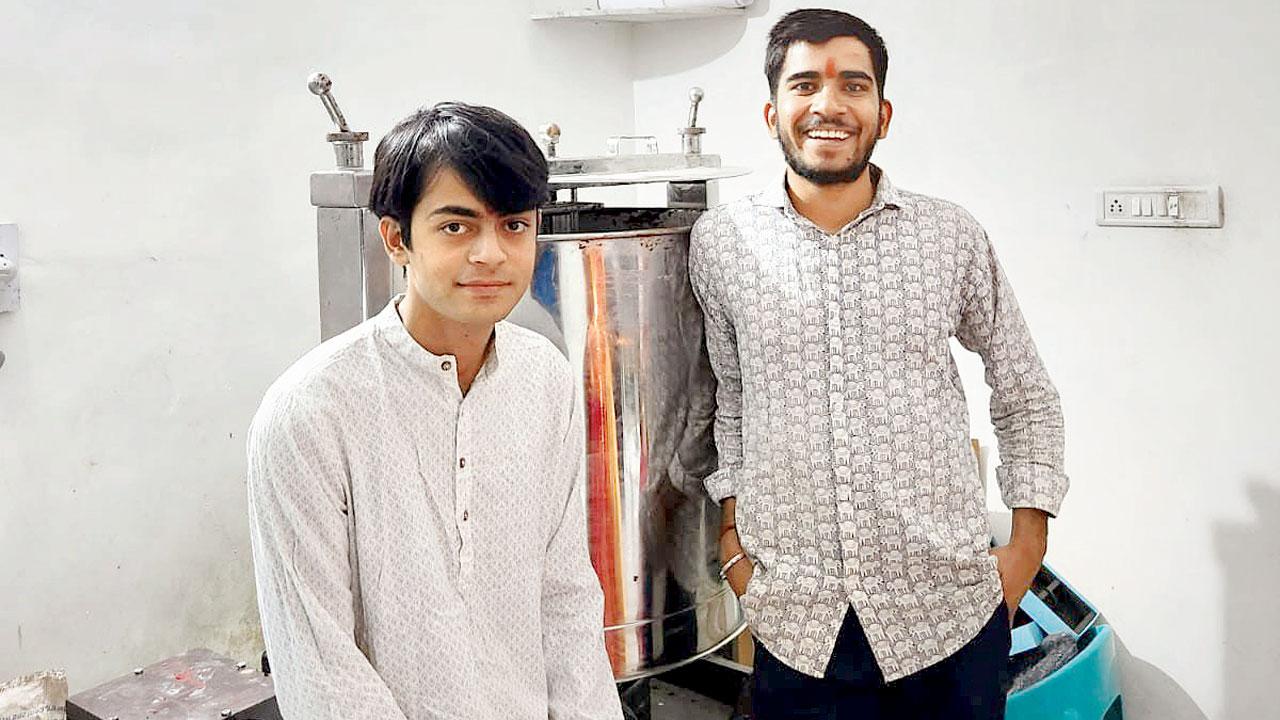A 19-year-old’s bean-to-bar chocolate brand is bringing the focus back to native Indian fruits

The cacao beans are currently procured from a farm in Idukki, Kerala
When boys his age were busy shortlisting colleges to apply to, all that 15-year-old Digvijaya Singh wanted to do was become a chocolatier. This wasn’t the original plan, he confesses. “This is the time I had completed my Class X, and the pandemic had just hit us out of nowhere [in March 2020],” Singh, now 19, tells us over a call from Udaipur, where he lives. “I wasn’t academically inclined and wanted to try out something different. But I was also cognisant of the fact that the economy wasn’t going to look up for another two years at least.”
ADVERTISEMENT

Keen on taking up a part-time gig, he remembers checking for recession-proof industries on Google. That’s how he accidentally landed on chocolates. With knowledge being in plenty on the web, Singh found himself sinking his teeth into this discovery, binging mostly on online chocolate tutorials. “I was fascinated with the idea of bean-to-bar chocolates [making them directly from cacao beans],” he shares. The process of sourcing and selecting the beans, roasting, winnowing, conching and tempering—as elaborate as it seemed—made him want to give it a shot.

At Saraam, single-origin chocolates are paired with baer, sitaphal, kokum, sea buckthorn, and karonda among other fruit
His handcrafted chocolate company, Saraam, is a result of that brainwave. “It started with me experimenting with some samples in the kitchen,” says the self-taught chocolatier. His cousin, Mahaveer Singh, and later his aunt, Sunita Singh, who were taken in by his idea, decided to join him. “It took a lot of trial and error,” he shares. The brand, initially called Sarang, became a reality only a year later in July 2021. “And our first bean-to-bar batch launched in December 2021.”
The beans, he says, were initially sourced from a farm in Puttur, Karnataka. “It is owned by Keshavamurthy, who also co-runs a tree-to-bar artisanal chocolate brand Koko Pods with his wife,” says Singh. “He was quite helpful in my journey, and also very encouraging. If I had queries, he was always happy to help. I was glad to be part of such a healthy ecosystem.”

Digvijaya and Mahaveer Singh, co-founders of Saraam
Initially, selling out of a store in Udaipur, the real breakthrough for this three-member team came when Singh attended a farmer’s market at Jaajam restaurant last year, where he was introduced to Kottarapurath Mohanchandran—the then Area Director of Udaipur and Jodhpur and General Manager of Taj Lake Palace, Udaipur, and his wife Seema. “They were very keen on promoting local bean-to-bar brands. That’s how Taj onboarded us and stocked our chocolates. Had this not happened, I would have abandoned my project completely, and gone on to pursue higher studies,” he says.
Since Singh had just completed his Class XII, he decided to take a gap year and invest all his energy into building his new brand, which he re-launched as Saraam in July 2022. But in a market already inundated with small batch, single origin chocolates, Singh was conscious about not creating a brand that was run off the mill.
Dilip Nair, General Manager of Taj Fateh Prakash Palace suggested he pair the chocolates with ber (baer) fruit, the tiny round somewhat sweet and sour plum, also known as Indian jujube. “I had never heard of this pairing before, but we decided to try it out.” The chocolate became an instant hit. For the G20 meeting in Udaipur at the Taj in December last year, Singh went on to create another untested combination— sitaphal (sugar apple) and chocolate.
Even as he was amid these experiments, he came across an article in an online environmental publication that highlighted how climate change and poor demand were leading to a drop in the cultivation of indigenous fruits in the country.
Singh decided to infuse new life into his brand—bringing indigenous fruits into the mix. Saraam’s chocolates are unusually paired with several native fruits. There are chocolates with kokum from the Konkan belt; sea buckthorn and karonda from Himachal; red chillies from Mathania, a village in Rajasthan; phalsa, a summer berry from the Ganga plains in Varanasi, and jamun and coconut. “We are working with various dehydration companies who buy these fruits from villagers who collect these fruits from the wild vegetation,” says Singh, “Since these fruits are not cultivated in abundance or at least are not easily sourceable, they sometimes end up costing thousands for a kilo in dried form.” His cacao beans now come from a farm based in the Idukki district of Kerala.
While they sold about 18,000 chocolate bars last year, Singh hopes that in the coming years not just the sales, but also the conversation around indigenous fruits pick up. The teenager, who is currently studying philosophy at Delhi University, says, “There are the traditionalists who can’t wrap their heads around our chocolates. They probably find it blasphemous,” he thinks. “But a large group of people seem to be loving it, and if our chocolates are making people curious about our native and diverse fruits, we are more than happy.”
TO BUY: saraam.co
 Subscribe today by clicking the link and stay updated with the latest news!" Click here!
Subscribe today by clicking the link and stay updated with the latest news!" Click here!







